Proteases
Proteases, also known as peptidases or proteolytic enzymes, consists of a large number of enzymes catalyzing the hydrolysis of peptide bonds and subsequently resulting in the degradation of protein substrates into amino acids. Proteases are involved in a wide range of human diseases, including cancer, neurodegenerative disorders, inflammatory diseases and cardiovascular diseases. Thus numerous proteases inhibitors (small molecules and proteins) have been identified to block activity of proteases. Proteases inhibitors can be classified into different types based on the class of proteases they inhibit through two general mechanisms, irreversible “trapping” reactions and reversible tight-binding reactions. Proteases inhibitors have been used as diagnostic or therapeutic agents for the treatment of proteases-related diseases.
-
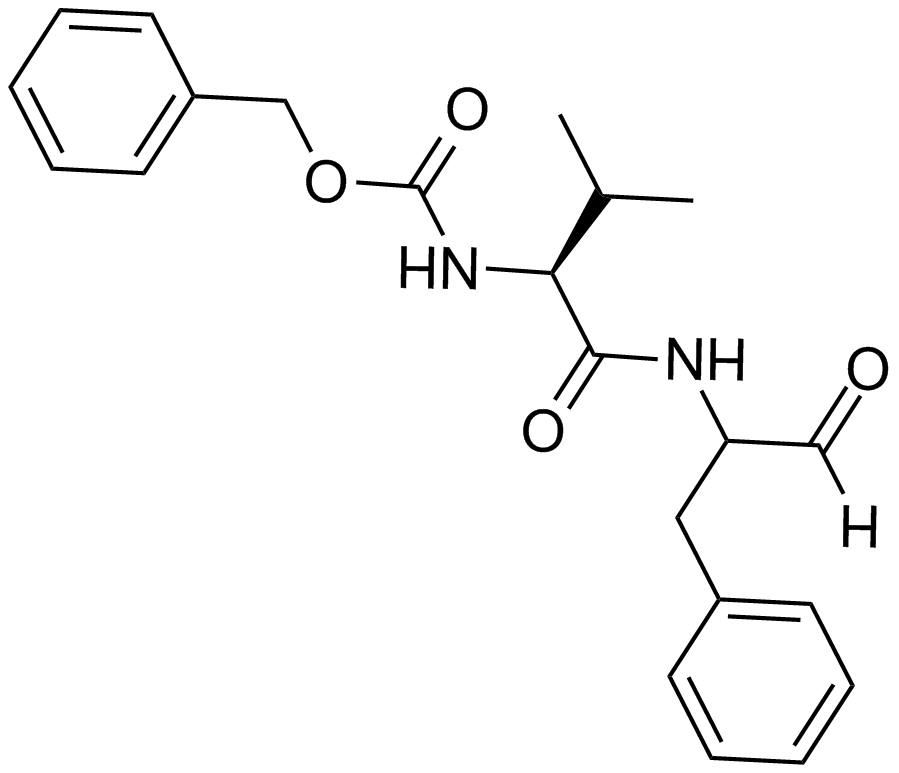 A4412 MDL 28170Target: Cathepsins|CalpainsSummary: Calpain and cathepsin B inhibitor, selective
A4412 MDL 28170Target: Cathepsins|CalpainsSummary: Calpain and cathepsin B inhibitor, selective -
 A4413 PD 150606Target: CalpainsSummary: Non-peptide calpain inhibitor
A4413 PD 150606Target: CalpainsSummary: Non-peptide calpain inhibitor -
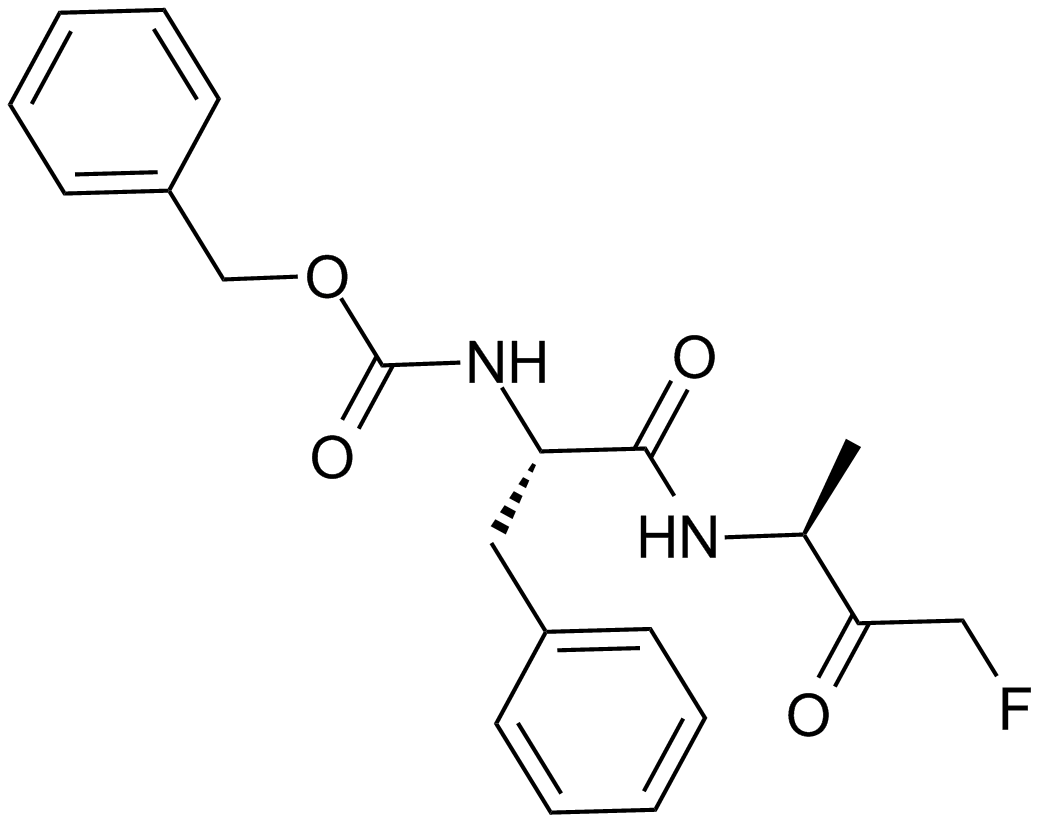 A8170 Z-FA-FMKTarget: cysteine proteaseSummary: Cysteine proteases inhibitor
A8170 Z-FA-FMKTarget: cysteine proteaseSummary: Cysteine proteases inhibitor -
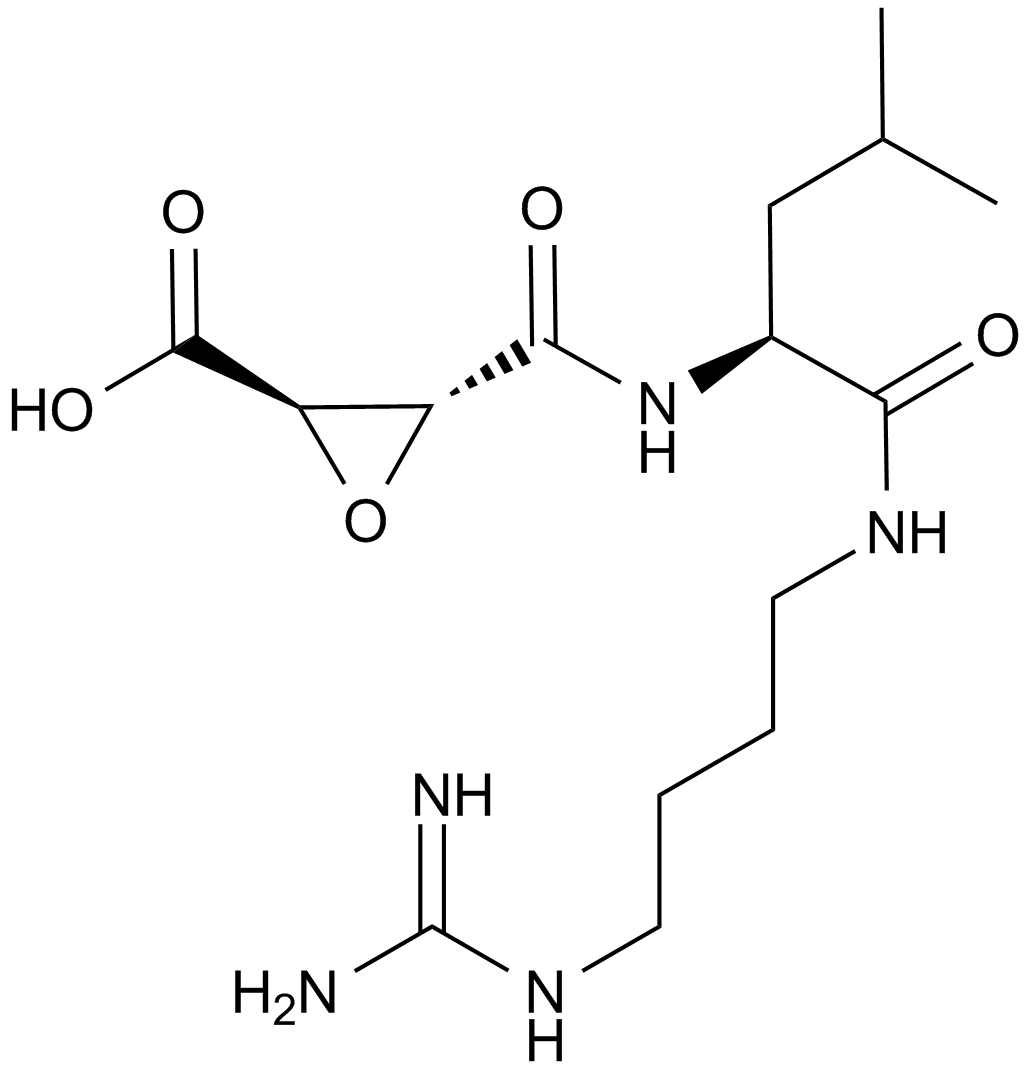 A2576 E-642 CitationTarget: Cathepsins|Calpains|PapainsSummary: Cysteine protease inhibitor,irriversible
A2576 E-642 CitationTarget: Cathepsins|Calpains|PapainsSummary: Cysteine protease inhibitor,irriversible -
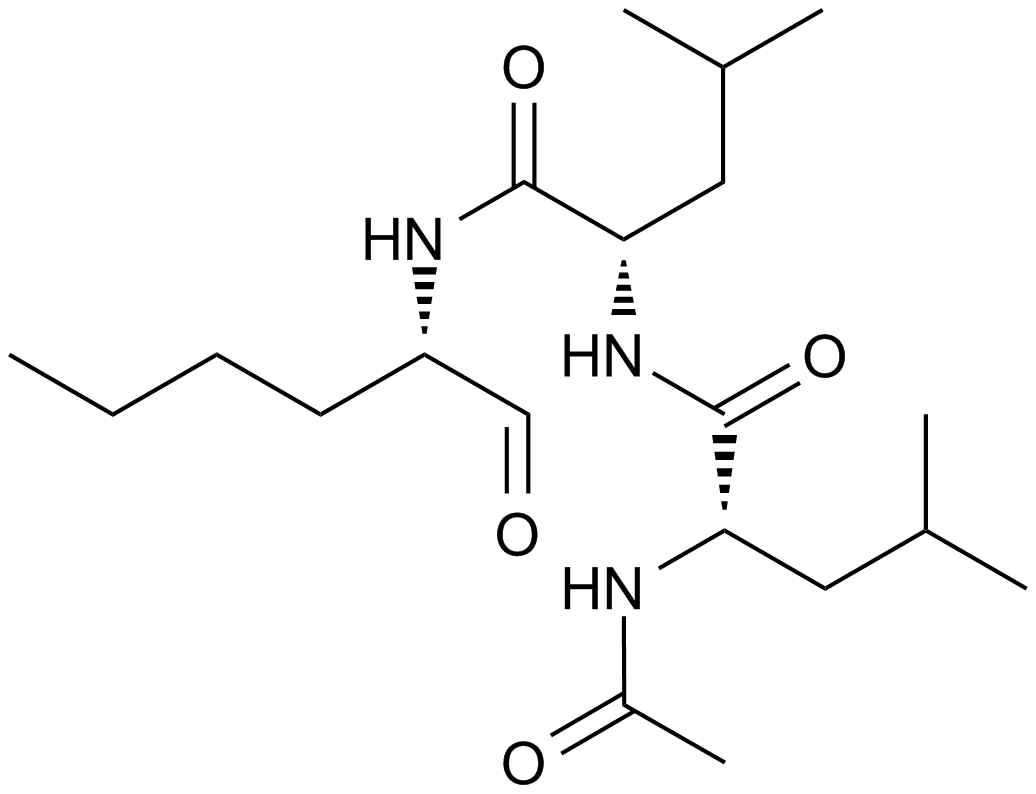 A2602 Calpain Inhibitor I, ALLN2 CitationTarget: Cathepsins|CalpainsSummary: Calpain I/II/ B/L inhibitor
A2602 Calpain Inhibitor I, ALLN2 CitationTarget: Cathepsins|CalpainsSummary: Calpain I/II/ B/L inhibitor -
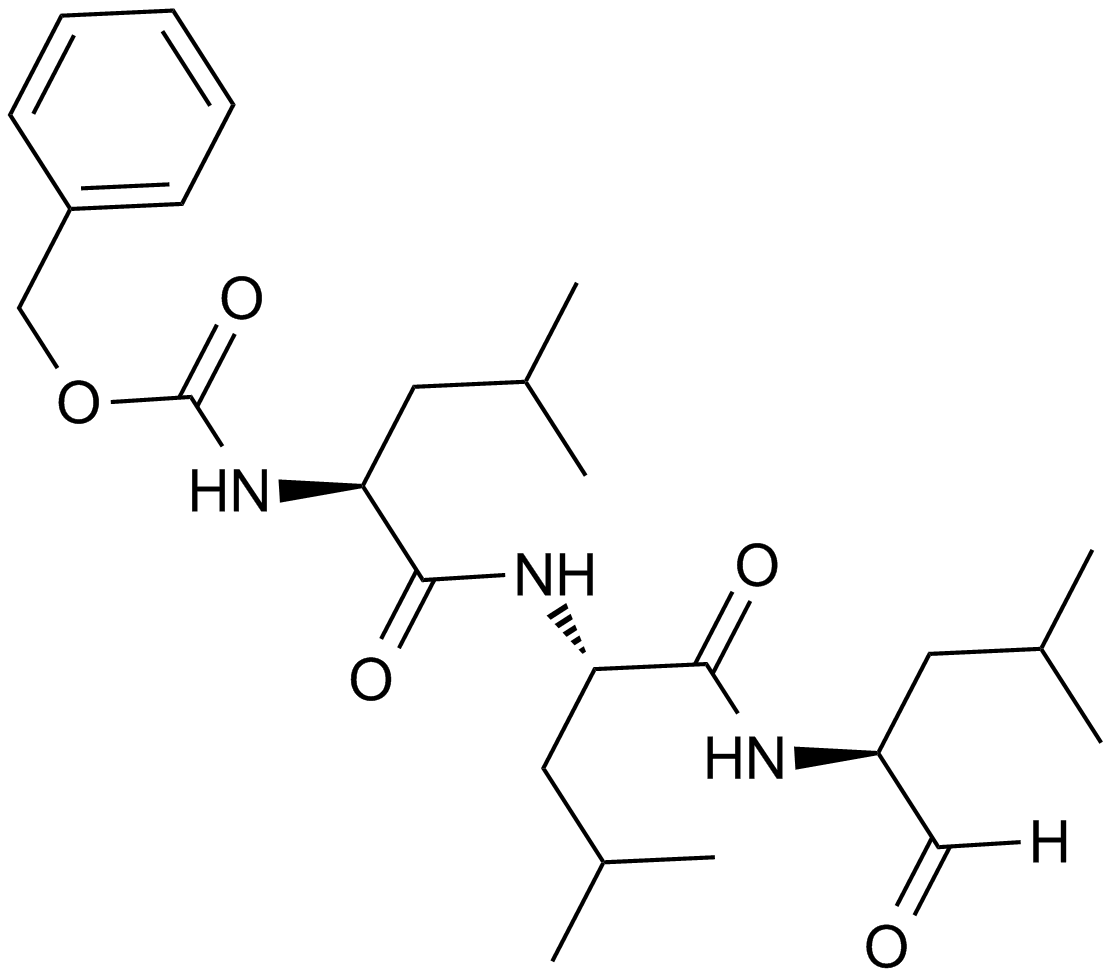 A2585 MG-13226 CitationTarget: ProteasomeSummary: Proteasome inhibitor, Cell permeable, reversible
A2585 MG-13226 CitationTarget: ProteasomeSummary: Proteasome inhibitor, Cell permeable, reversible

